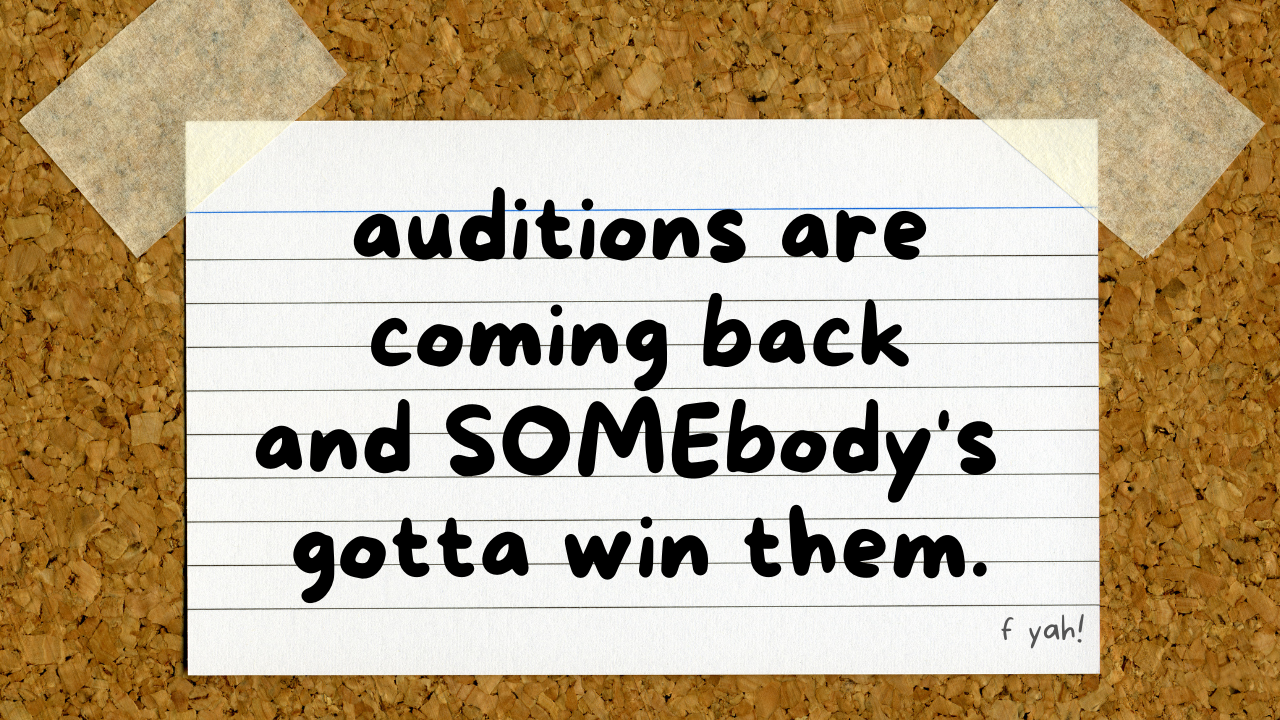it's day 5 of the 12 days of auditions! it's the video series where each day i cover a different topic on how to take auditions. yesterday was day 4: how to make an audition tape. make sure to join the auditionhacker facebook group to see the rest of them.
here's the transcription of the video:
audition preparation, as a activity, is a complicated, multi-layered project. there are tons of little tasks that have to be done, and each task requires different skills. each one has to be done at a particular time, in a particular way, and they all have to fit into the big picture so that all the other tasks can get done too. and together, that all makes up what we call “preparing for an audition.”
today’s video is about how to deal with the unorganized mess of tasks that make up our preparation. it’s day 5 of the #12days of auditions, where each day i cover a different topic on how to take auditions.
it’s the step-by-step assembly line for your excerpts.
a good way to think of your audition prep visually is in a factory assembly line. like how they make cars. say that at the beginning of your assembly line, you have a sheet of metal. at station number one, the sheet of metal is crunched into the shape of a car. i’m totally just making this up. then it keeps moving on the assembly line to the next station, which is where someone screws the door handle in, and someone stamps the logo into the car. i hope no one who’s ever actually made cars watches this.
your audition prep is like that too. except for you, you put the excerpt in on one side, and then a series of tasks happen. you work with a metronome. you record yourself. you play for people.
want a head start on the basics of audition preparation?
enroll in my new online mini-course, called how to advance in an orchestra audition 101. it'll be delivered straight to your email starting on november 10th.
the boss designs the assembly line.
so in the factory assembly line, there’s someone who’s the factory boss. she’s the manager that sits in the glass office above everything so she can watch the whole process unfold. she decides the order of stations. she’s in charge of improving things in each station. in your audition preparation factory, that’s you: the boss. you get to decide the step-by-step assembly line that your excerpts go through. this part is where you can make your audition prep more efficient and effective. [this is the part where you can adjust your audition prep so that your excerpts come out the other side better than they would have.]
the worker bee:
but at each of those stations in the factory, there’s an employee who works there and is actually doing the task for each station. someone stamps the logo on. someone paints the car red. when you’re being the worker bee, you’re sitting there with the metronome working on your excerpt over and over. you’re actually doing the task.
but this is the heart of what makes audition preparation complicated. you’re the ceo and the employee. you have to be the boss, and decide what to do, and you also have to be the worker bee, and actually do each task.
you can’t only be the boss. if all you do is plan and strategize, no actual work will happen. at some point, you have to actually choose a task, buckle down, and start working on it.
but if you’re always the worker bee and you never think about how to make the process better, then you’re going to hold yourself back.
the point is this: you have to accept both roles, and take them both on, simultaneously. you have to constantly take a step back, keep an eye on the big picture and make sure that the right things are getting done. at the same time, you have to be committed and working hard, actually doing the tasks that you know are right. this balance is key when you’re preparing for auditions.
the next few days i’ll be talking about some strategies of how to prepare better. in the meantime, you can enroll in my new online course called, “how to advance at an orchestra audition 101.” see you tomorrow when i answer the question, "how many hours you should practice each day?"












i've worked with hundreds of musicians on audition preparation. and nothing - NOTHING - has been as effective and life-changing as when they start self-recording the right way.